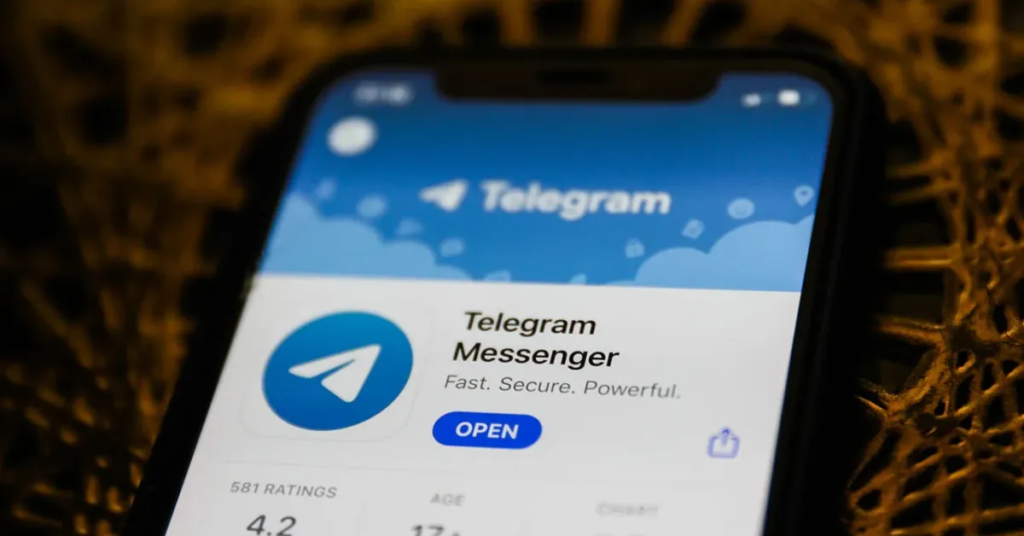
Introduction to Telegram and its Popularity in India
Telegram has taken India by storm, becoming one of the most popular communication apps in the country. With its encrypted messaging features and user-friendly interface, it attracts millions who seek privacy in their conversations. However, this popularity comes with its own set of challenges. As users flock to Telegram for secure communications, the app finds itself under scrutiny from Indian authorities.
The landscape is shifting as multiple cases have emerged involving Telegram and government investigations into potential security issues. Questions about surveillance and national security are now at the forefront of discussions regarding this beloved app. What does all this mean for users? Are our private chats truly safe? Let’s dive deeper into how Telegram is navigating these turbulent waters while addressing mounting concerns over user privacy and data protection in India.
Recent Cases Involving Telegram and Indian Government
Telegram has recently found itself under the Indian government’s scrutiny due to several high-profile cases. Law enforcement agencies have raised alarms about its use in facilitating unlawful activities, including terrorist communications and drug trafficking.
In one notable incident, authorities traced illegal arms dealings that were reportedly coordinated through Telegram channels. This case highlighted how encrypted messaging can sometimes shield criminal operations from detection.
Additionally, during protests last year, activists used Telegram for organization and information sharing. The platform’s anonymity features made it a go-to choice for dissenters looking to communicate securely.
These developments prompted the Indian government to initiate investigations into how Tele-gram is being monitored and what measures it could implement to assist law enforcement without compromising user privacy rights. Such tensions reflect a broader global conversation about balancing security needs with individual freedoms in digital communication.

Security Concerns Raised by the Indian Government
The Indian government has expressed serious security concerns regarding Tele-gram’s use in the country. Its encrypted messaging features, while appealing for user privacy, can also serve as a double-edged sword.
Law enforcement agencies argue that such strong encryption hampers investigations. Terrorist groups and criminals may exploit this platform to coordinate nefarious activities without detection. This raises alarms about national security.
Moreover, there’s apprehension over the app’s ability to facilitate misinformation during sensitive times. The rapid spread of false narratives can incite panic or unrest.
Additionally, regulatory bodies have highlighted challenges in monitoring communications on Tele-gram. The lack of transparency makes it difficult for authorities to track potential threats effectively.
These concerns are fueling discussions around potential legal scrutiny and data protection measures mandated by the government. As tensions rise between safeguarding user privacy and ensuring public safety, the future landscape of communication apps like Tele-gram remains uncertain.
How Telegram is Addressing these Issues
Telegram is taking significant steps to address the concerns raised by the Indian government. The platform has implemented measures aimed at enhancing user safety and data protection.
One of these measures includes increased transparency in its operations. Telegram is now providing more detailed insight into how it handles user data, responding to calls for better accountability.
Additionally, they are actively collaborating with local authorities. This partnership aims to ensure compliance with legal requests while balancing user privacy rights.
The app has also improved its reporting features. Users can easily flag content that violates community guidelines or poses security threats, helping foster a safer environment.
Moreover, Telegram continues to promote awareness around privacy settings among users. By empowering individuals with knowledge about encryption and security controls, they reinforce trust in their communication app amidst growing scrutiny from law enforcement agencies.

Impact on Users and Their Privacy
The growing scrutiny of Telegram by Indian authorities raises significant concerns for users. As the platform becomes a subject of government investigations, many worry about their privacy and data security.
Users often appreciate Telegram’s encrypted messaging features. However, increased monitoring could undermine this sense of safety. The potential for surveillance creates an uneasy atmosphere around personal communications.
With legal scrutiny intensifying, individuals might reconsider how they use the app. Conversations that were once deemed private may now feel vulnerable to external eyes. This shift can lead to self-censorship among users who fear repercussions.
Moreover, trust in communication apps is critical for user retention and engagement. If Telegram fails to address these pressing issues effectively, it risks alienating its loyal user base in India.
As awareness grows regarding national security and data protection laws, the delicate balance between privacy and safety continues to evolve in the context of messaging platforms like Telegram.
Alternative Messaging Apps in India
As concerns around surveillance and privacy mount, many users in India are exploring alternative messaging apps. With Telegram under the Indian security scanner, options like Signal and WhatsApp have gained traction.
Signal stands out for its strong emphasis on user privacy. It offers end-to-end encryption without compromising functionality. Users appreciate its commitment to keeping conversations secure from prying eyes.
WhatsApp remains immensely popular due to its extensive user base and features like voice calling and status updates. However, it has faced criticism over data-sharing policies with parent company Meta.
Other noteworthy platforms include Viber and Threema, which prioritize encrypted communication. While these alternatives provide various tools for secure messaging, their overall adoption depends largely on user preferences.
In a landscape increasingly influenced by national security considerations, finding a reliable communication app is more critical than ever for those valuing their online privacy.
Conclusion: The Future of Telegram in India
The future of Telegram in India remains uncertain as it navigates through the complexities of national security and privacy concerns. As government investigations intensify, users are increasingly aware of how their data is handled. The app’s strong encryption has made it a favorite among many for secure communication. However, this very feature also raises alarms for law enforcement agencies.
As the Indian government continues to scrutinize various cases involving Telegram, it’s clear that user privacy will be a critical issue moving forward. How Telegram responds to these challenges could shape its role in India’s digital landscape significantly. Users may need to weigh their options carefully—considering both the benefits of encrypted messaging and the potential risks tied to surveillance and monitoring.
With alternative messaging apps vying for attention in India’s bustling market, Telegram’s ability to address security issues while maintaining user trust will determine its future trajectory. The delicate balance between safeguarding national interests and upholding individual privacy rights is one that needs careful consideration by all stakeholders involved.
For more such content, keep visiting QAWire
